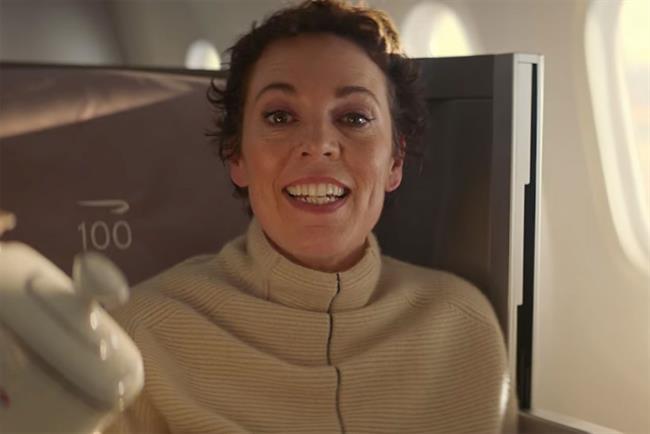Olivia Colman has come a long way since the Schwartz ad I worked on with her in 2009. But even back then, her supreme talent and charm singled her out as a star. You can also see her brilliance shine through early on in her career as Bev in the famous . Colman later revealed that the commercial became so successful it lost her acting jobs at the time because so many people thought of her as Bev.
As well as being an astonishingly gifted actress, Colman was a joy to be around on the Schwartz shoot – always friendly, warm and incredibly funny. What’s obvious from her speech at the Oscars and her media interviews is that she has remained the approachable, grounded, hilarious woman she was long before she became Britain’s (and right now the world’s) favourite actress.
Talented actors like Colman have the ability to completely elevate a piece of work. Casting is everything in film and theatre, and the same is true for commercials. Those of us in advertising who are lucky enough to work with performers of that calibre have the privilege of seeing their transformative power up close. Even in their early career, that kind of talent is obvious from the first casting call. Every other actor in the line-up instantly fades into the background. Great performers can make even the shoddiest lines sound like Shakespeare.
One of my favourite performances in a commercial is Anthony Hopkins in the , doing an immensely compelling monologue to camera. The film is so powerful because it is entirely centred on his performance. Also, Joan Collins and Leonard Rossiter are still a joy to watch in the of the 1970s and 80s.
An actor can escalate the creative idea by breathing life into the character and the scene. When directing, I like to give actors room to play. Improvising can take a scene from good to great. While I’m in no way dismissing the magnitude of their talent, some directors, such as Quentin Tarantino or Woody Allen, can sometimes force their own personality into the actor’s performances, where the naturalism of the actor can get a bit lost. The better approach is to give guidance only where needed, even with young actors. If they are talented and right for the part, their instincts can be enough.
When you’re creating or directing a commercial, every stage in the process should improve the raw material, from the casting and lighting to the editing and sound. If you want the right cast, you can’t just hand over the job to the casting agency. You will need to do some legwork yourself to broaden the pool.
I’ve struggled to get black acting talent because traditional casting agencies don’t go to the sorts of events or live performances where black emerging stars can be found. So many times I’ve had to ask friends or family for recommendations of comedy or performance nights to go to in order to get the people I’m looking for. There are a few casting agents out there hungry enough to cast the net wide and find more diverse performers but, like the ad industry, casting is generally a very homogenised world in desperate need of a shake-up.
It is your responsibility as a creative or a director to make sure the widest possible range of young talent gets the opportunities. In that way, you’re not only advancing the industry and making your work better, you could discover a future Oscar winner.
Trevor Robinson is the founder and executive creative director of Quiet Storm


